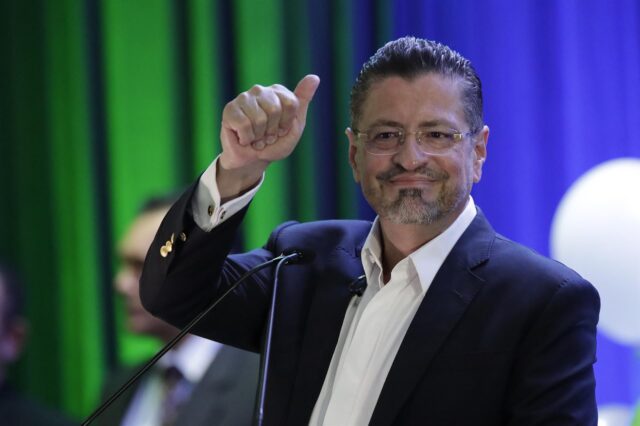Costa Rica is in the top ten of the most trusted governments, according to a survey of 15-year-olds in one of the member countries of the Organization for Economic Co-operation and Development (OECD).
As it turns out, Costa Rica reached 60% confidence in 2023, which is undoubtedly a remarkable increase compared to the years 2021 and 2022, when the increase was 28.5%.

It should be noted that the figures according to the trust worthiness of government institutions position the country as the leader in Latin America in this respect.
The result is also evidence of how citizens view the national government and its agencies, the quality, transparency, and consistency in each of their actions.
In detail: Switzerland ranks first in terms of trustworthiness with 83.78%, followed by Luxembourg with 78.2%, followed by Costa Rica with Germany with 60.76% Portugal with 58.92%, followed by Slovakia with 21.5%.
The last place is occupied by the Slovak Republic with 21.5%. The last place is occupied by the Slovak Republic with 21.5%, which is interesting because Vladimir Putin (Russia) ranks first with 79%, while Volodymyr Zelenskyy (Ukraine) ranks third with 73%, Joe Biden (United States) ranks 11th with 39% and Justin Trudeau (Canada) ranks 15th with 30%.
The most developed public education systems
According to U.S. News and World Report, the countries with the most developed public education systems are 86 countries, with Sweden, Finland, Denmark, Germany, Canada, and the United Kingdom at the top of the list.
The OECD’s PIS study, which uses standardized tests or examinations for 15-year-old students to determine the best education and quality, includes Chile, Argentina, Mexico, Brazil, Uruguay, Costa Rica, and Colombia.
To have quality education, according to the study, means that in one country there are teachers and professors with complete academic training, who can impart knowledge solidly; there are strategic alliances between institutions and organizations that promote education; there is a quantity and quality of educational infrastructure and materials that facilitate the consumption of educational information; there is a constant motivation for learning and research; and there is a system that can innovate and adapt to the needs of the environment of the students themselves.

Costa Rica leads in foreign investment
Data provided by the Central Bank of Costa Rica (BCCR) and the International Monetary Fund (IMF) make Costa Rica one of the countries with the highest levels of foreign direct investment in Central America.
Thus, Costa Rica has one of the best volumes of Foreign Direct Investment (FDI) in the region comprising Central America and the Dominican Republic.
1,563.39 million in the first half of 2022 were the FDI inflows recorded by the country, whose data, in comparison with the countries in the region, except for the Dominican Republic ($427 million more), were considered higher.
Experts announced at the end
In 2022 that economic growth would remain at 5% in 2023 and may decrease by 4.3% next year 2024. Concerning exports of manufactured goods, particularly medical equipment, tourism, and business services, a notable increase has been observed.
For the Central American Academy, the implementation of reforms to improve debt management is ongoing in the country, in addition to reducing financing costs. Costa Rica continues with fiscal consolidation and expects the debt-to-GDP ratio to be below 60% by 2025.

In this way, Costa Rica is considered to be a successful year in terms of development in several areas, which in the 25 years to date has seen impressive economic growth.

